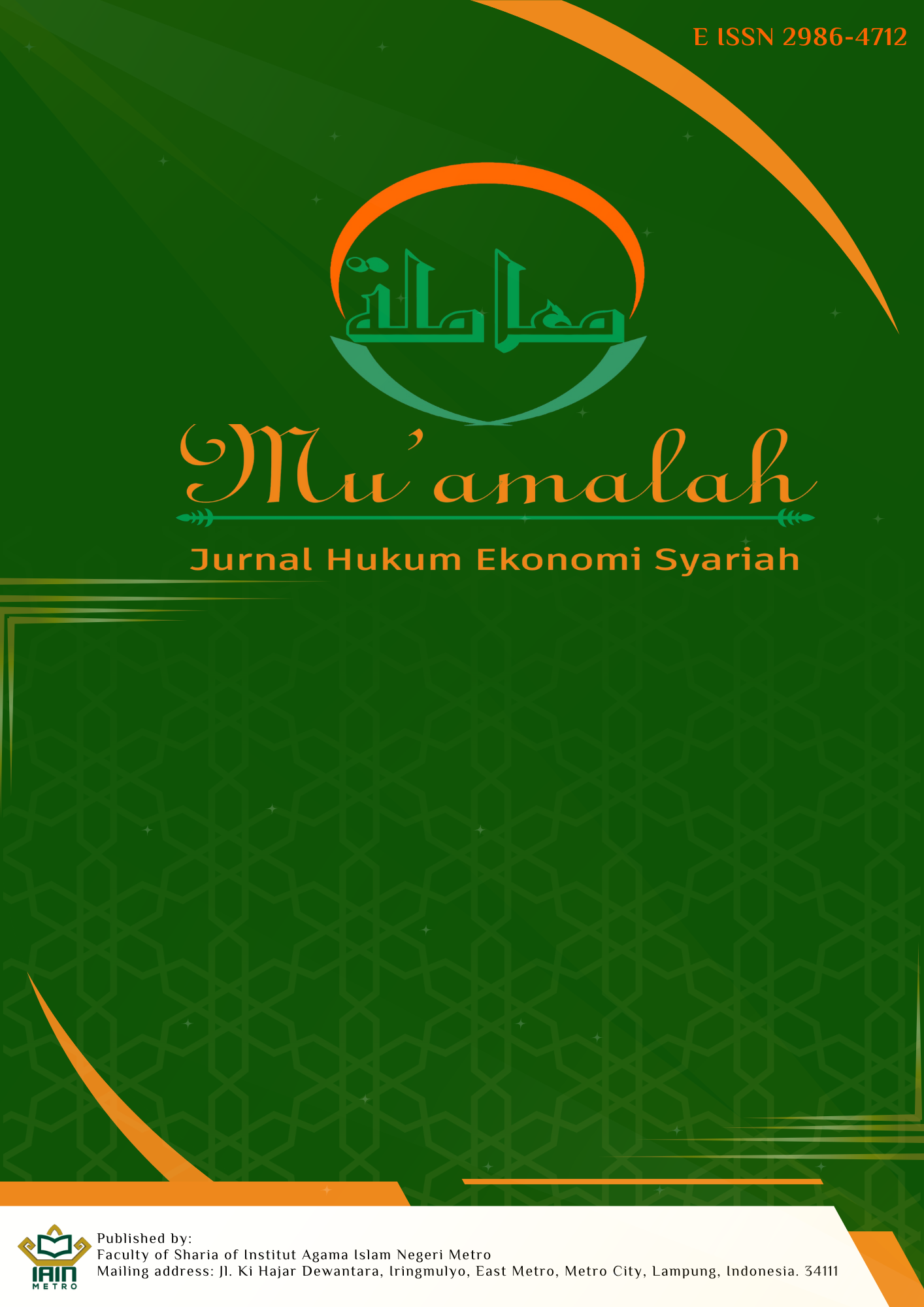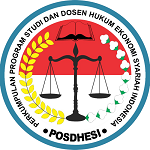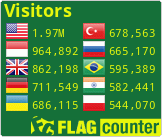PHILOSOPHICAL FOUNDATIONS FOR RESEARCH AND DEVELOPMENT OF SHARIA ECONOMIC LAW METHODOLOGY:
An Integrative Approach to Ontology, Epistemology, and Axiology
DOI:
https://doi.org/10.32332/muamalah.j35g5g18Keywords:
Normative-legal methodology, Sharia Economic Law, Ontology, Epistemology, AxiologyAbstract
This study examines the philosophical dimensions in the development of Sharia economic law methodology by highlighting three main aspects: ontological, epistemological, and axiological. The purpose of this research is to formulate a methodological framework capable of integrating the normative Islamic sources based on divine revelation with scientific rationality and empirical perspectives within the discipline of economics. Methodologically, this normative-legal study employs a qualitative approach through a philosophical–integrative library research method. This approach involves a critical analysis of classical and contemporary literature on Islamic law, economic theory, and the philosophy of science, to formulate the relationship between spiritual and material realities, as well as between transcendental values and the empirical realities of the economy. Through this approach, the research is not only descriptive of the methodology of Sharia economic law but also constructive in formulating the direction for developing an adaptive Sharia economic law methodology in response to modern socio-economic dynamics. The findings show that, ontologically, Sharia economic law is rooted in the integration of spiritual and material realities; epistemologically, it combines revelation, rationality, and empirical understanding as the foundation of legal knowledge; and axiologically, it emphasizes justice, balance, and public benefit (maṣlaḥah) as its normative orientation. Thus, this study contributes to strengthening the philosophical foundation while providing a conceptual direction for the development of Sharia economic law methodology that is holistic, adaptive, and grounded in Islamic ethical values consistent with the maqāṣid al-sharī‘ah, ensuring its continued relevance to contemporary global economic challenges.
Downloads
References
Abu-Sahlieh, Sami A. Aldeeb. “The Islamic Conception of Migration.” International Migration Review 30, no. 1 (1996): 37–57. https://doi.org/10.1177/019791839603000105.
Albertine, Kurt H. “Stewardship of Integrity in Scientific Communication.” The Anatomical Record 301, no. 9 (2018): 1481–87. https://doi.org/10.1002/ar.23858.
Am, Rusydi, and Mhd. Idris. “Interpretation Of Al-Qur’an In The Disruption Era: Reversing Roles Of Ulum Al-Qur’an.” Jurnal Ulunnuha 9, no. 1 (2020): 93–102. https://doi.org/10.15548/ju.v8i3.1458.
Asmawi, Asmawi. “Epistemologi Hukum Islam: Perspektif Historis, Sosiologis Dalam Pengembangan Dalil.” Tribakti: Jurnal Pemikiran Keislaman 32, no. 1 (2021): 57–76. https://doi.org/10.33367/tribakti.v32i1.1393.
Aziz, Husein. “Epistemology of the Integration of Religion and Science Qur’anic Perspective.” Tribakti: Jurnal Pemikiran Keislaman 33, no. 2 (2022): 239–64. https://doi.org/10.33367/tribakti.v33i2.2833.
Barr, Stephen M. “Revelation and Cosmology.” In The Oxford Handbook of Divine Revelation, 1st ed., edited by Balázs M. Mezei, Francesca Aran Murphy, and Kenneth Oakes. Oxford University Press, 2021. https://doi.org/10.1093/oxfordhb/9780198795353.013.34.
Briley, Rebecca L. “River of Earth: Mythic Consciousness in the Works of James Still.” Appalachian Heritage 9, no. 2 (1981): 51–55. https://doi.org/10.1353/aph.1981.0037.
Çelik, Özgür, and Dinçay Köksal. “Ontological and Epistemological Foundations of Research: The Analysis of Three Educational Studies.” ELT Research Journal 8, no. 4 (2019): 191–99. http://dergipark.ulakbim.gov.tr/eltrj/.
Choudhury, Masudul Alam, and Muhammad Nazmul Hoque. “Shari’ah and Economics: A Generalized System Approach.” International Journal of Law and Management 59, no. 6 (2017): 993–1012. https://doi.org/10.1108/IJLMA-07-2016-0067.
Damayanti, Febrinda Setyo, and Moses Glorino Rumambo Pandin. “Book Review: Axiology: As the Basis for Developing the Personality of the Indonesian Nation and State (Aksiologi: Sebagai Dasar Pembinaan Kepribadian Bangsa Dan Negara Indonesia).” Preprint, June 24, 2021. https://doi.org/10.31235/osf.io/ur2wt.
Davison, Robert M, and Maris G Martinsons. “Context Is King! Considering Particularism in Research Design and Reporting.” Journal of Information Technology 31, no. 3 (2016): 241–49. https://doi.org/10.1057/jit.2015.19.
De Roo, Gert. “Knowing in Uncertainty: On Epistemic Conditions Differentiated for Situations in Varying Degrees of Uncertainty, the Distinction Between Hierarchical and Flat Ontology, and the Necessary Merger With the Axiological Domain of Values.” disP - The Planning Review 57, no. 2 (2021): 90–111. https://doi.org/10.1080/02513625.2021.1981016.
Dingle, Herbert. “The Foundations of Empirical Knowledge.” Nature 147, no. 3723 (1941): 286–90. https://doi.org/10.1038/147286a0.
“Economy in Islam: jurisprudential heritage and cognitive rootsTo achieve the purposes of Sharia.” Journal of Scientific Development for Studies and Research, ahead of print, October 1, 2022. https://doi.org/10.61212/jsd/73.
Fuller, Steve. “Deviant Interdisciplinarity as Philosophical Practice: Prolegomena to Deep Intellectual History.” Synthese 190, no. 11 (2013): 1899–916. https://doi.org/10.1007/s11229-012-0208-6.
Gaspard, Jules J. S., and Giangiuseppe Pili. “Integrating Intelligence Theory with Philosophy: Introduction to the Special Issue.” Intelligence and National Security 37, no. 6 (2022): 763–76. https://doi.org/10.1080/02684527.2022.2076327.
Harmon, Justin L. “The Normative Architecture of Reality: Towards an Object-Oriented Ethics.” University of Kentucky, 2016. https://doi.org/10.13023/ETD.2016.114.
Hidayat, Enang. “Induction and Its Relevance to the Transformation of Sharia Economic Law in Indonesia: A Study of Four Madhhabs.” Ulul Albab: Jurnal Studi Dan Penelitian Hukum Islam 7, no. 1 (2024): 71. https://doi.org/10.30659/jua.v7i1.28692.
Higgins, Andrew, and Alexis Dyschkant. “Interdisciplinary Collaboration in Philosophy.” Metaphilosophy 45, no. 3 (2014): 372–98. https://doi.org/10.1111/meta.12091.
Houtman, Dick, and Birgit Meyer. Things: Religion and the Question of Materiality. Fordham University Press, 2012. https://doi.org/10.5422/fordham/9780823239450.001.0001.
Ibrahim, Magdy Mohamed. “The Spiritual Aura: A Study of the Philosophy of Balance.” Majallah Wādī An-Nīl Li Ad-Dirāsāt Wa al-Buḥūts al-Insāniyyah Wa al-Ijtimā‘iyyah Wa at-Tarbawiyyah 40, no. 40 (2023): 819–34.
Jamal, Arif A. “Authority and Plurality in Muslim Legal Traditions: The Case of Ismaili Law†.” The American Journal of Comparative Law, October 31, 2019, avz023. https://doi.org/10.1093/ajcl/avz023.
Kamali, Mohammad Hashim. “Islam and Sustainable Development.” Islam and Civilisational Renewal 7, no. 1 (2016): 8–26. https://doi.org/10.12816/0027165.
Li, Cheng. “The Rationality Principle as a Universal Grammar of Economic Explanations.” Journal of Philosophical Economics Volume XIII Issue 2, no. Articles (2020): 10735. https://doi.org/10.46298/jpe.10735.
Lumban Gaol, Christopher Panal, Gregory Hansrainer, and Bennett Rainey. “Bank Interest in Islamic Law.” At-Tasyrih: Jurnal Pendidikan Dan Hukum Islam 9, no. 1 (2023): 34–43. https://doi.org/10.55849/attasyrih.v9i1.149.
Mandasini, Andi Agus. “Improving the Validity of Scientific Research Results through Research Methodology Management.” Kontigensi : Jurnal Ilmiah Manajemen 10, no. 2 (2022): 439–47. https://doi.org/10.56457/jimk.v10i2.389.
Mattessich, Richard. Reality and Accounting. 0 ed. Routledge, 2013. https://doi.org/10.4324/9780203798737.
Meirison, Meirison, and Darni Yusna. “Problems In The Implementation Of Islamic Law In The Contemporary Era.” Jurnal AL-AHKAM 13, no. 1 (2022): 49–60. https://doi.org/10.15548/alahkam.v13i1.4425.
Mohr, Hans. “The Ethics of Science.” Interdisciplinary Science Reviews 4, no. 1 (1979): 45–53. https://doi.org/10.1179/030801879789801786.
Muhammadong, Muhammadong, and Dedi Junaedi. “Controvertion Between Text Versus Context In Interpreting Al-Qur’an.” Jurnal Diskursus Islam 9, no. 2 (2021): 336. https://doi.org/10.24252/jdi.v9i2.22672.
Musadad, Ahmad, Baihaqi, Khoirun Nasik, A. Mufti Khazin, and Mochamad Syaifudin. “The Role of The Taysir Manhaji Method in The Development of Islamic Economic Law in Indonesia Through DSN-MUI Fatwas.” Journal of Islamic Economic Laws 8, no. 01 (2025): 130–54. https://doi.org/10.23917/jisel.v8i01.7607.
Nickles, Thomas. “Integrating the Science Studies Disciplines.” In The Cognitive Turn, edited by R. D. Whitley, vol. 13, edited by Steve Fuller, Marc Mey, Terry Shinn, and Steve Woolgar. Sociology of the Sciences a Yearbook. Springer Netherlands, 1989. https://doi.org/10.1007/978-94-015-7825-7_12.
Pratama, Angkat Poetra, Hari Sutra Disemadi, and Paramita Prananingtyas. “Existence And Position Of Islamic Economic Laws In Indonesia.” Legality : Jurnal Ilmiah Hukum 27, no. 2 (2019): 222. https://doi.org/10.22219/jihl.v27i2.10159.
Rakib, Abdur, and Zakiyah Muhammad Jamil. “Illat, Hilah, Dan Hikmah Sebagai Pertimbangan Perubahan Hukum Islam.” As-Syar’i: Jurnal Bimbingan & Konseling Keluarga 2, no. 2 (2021): 195–203. https://doi.org/10.47467/assyari.v2i2.236.
Shaw, D, and Bs Elger. “The Relevance of Relevance in Research.” Swiss Medical Weekly, ahead of print, May 7, 2013. https://doi.org/10.4414/smw.2013.13792.
Sobočan, Ana M., and Ian Calliou. “Editorial.” Ethics and Social Welfare 17, no. 2 (2023): 105–8. https://doi.org/10.1080/17496535.2023.2209931.
South Eastern Kenya University, P.O. Box 170 - 90200, Kitui, KENYA, and Anthony Opiyo Ogutu. “Philosophical Understanding and Its Role in Other Fields of Study.” International Journal of Current Advanced Research 6, no. 3 (2017): 2579–89. https://doi.org/10.24327/ijcar.2017.2589.0052.
Suaidi, Suaidi. “Bridging Institutional and Regulatory Gaps: Enhancing Sharia Compliance in Islamic Financial Institutions in Indonesia.” El-Uqud: Jurnal Kajian Hukum Ekonomi Syariah 3, no. 1 (2025): 23–39. https://doi.org/10.24090/eluqud.v3i1.13288.
Suaidi, Suaidi. Ekonomi Islam dalam Al-Qur’an. Duta Media, n.d. https://scholar.google.com/citations?view_op=view_citation&hl=en&user=uC-PdGQAAAAJ&citation_for_view=uC-PdGQAAAAJ:roLk4NBRz8UC.
Suaidi, Suaidi, Rehana Anjum, Muhamad Nasrudin, Maksum Maksum, and Sriyati Dwi Astuti. “Halal Food Development in Bali: Dynamics of Muslim Beliefs, State Regulations, and Local Culture.” Al-Ahkam 35, no. 1 (2025): 147–78. https://doi.org/10.21580/ahkam.2025.35.1.25732.
Suaidi, Suaidi, Zainul Mun’im, Sriyati Dwi Astuti, Ivan Riyadi, Siti Khabibah, and Nurul Huda. “Harmonisation Between DSN-MUI Fatwas and OJK Regulations: Towards an Innovative and Inclusive Sharia-Compliant Fintech Ecosystem in Indonesia.” Mazahib 24, no. 1 (2025): 182–97. https://doi.org/10.21093/mj.v24i1.10032.
Suaidi, Suaidi, Ali Sodiqin, and Abdur Rozaki. “A Critique of Contemporary Economic Justice and Sharia Economic Law on The Tompangan Tradition.” Jurnal Hukum Islam 22, no. 2 (2024): 249–80. https://doi.org/10.28918/jhi.v22i2.01.
Suparmin, S., and Dedy Rachmad. “Ushul Fiqh Aspects in Shariah Economic Research.” June 5, 2020. https://www.semanticscholar.org/paper/Ushul-Fiqh-Aspects-in-Shariah-Economic-Research-Suparmin-Rachmad/e5ebe2ee9256feed7652c0dcd2d94e764fe94774.
Taufiq, M, Suaidi Suaidi, and Kudrat Abdillah. “Toward Ecological Justice: A Maqāṣid-Based Socioeconomic Analysis of Coastal Reclamation in Tapakerbau, Indonesia.” Asy-Syir’ah: Jurnal Ilmu Syari’ah Dan Hukum 59, no. 1 (2025): 48–63.
Van Den Broeck, Jan, Jonathan R. Brestoff, and Meera Chhagan. “Maintaining Data Integrity.” In Epidemiology: Principles and Practical Guidelines, edited by Jan Van Den Broeck and Jonathan R Brestoff. Springer Netherlands, 2013. https://doi.org/10.1007/978-94-007-5989-3_19.
Zain, Muhammad Fuad, and Ahmad Zayyadi. “Measuring Islamic Legal Philosophy and Islamic Law: A Study of Differences, Typologies, and Objects of Study.” El-Aqwal : Journal of Sharia and Comparative Law, January 2, 2023, 1–12. https://doi.org/10.24090/el-aqwal.v2i1.7472.
Zakiyah, Ermita. “Maudhui’s Tafsir Method in the Qur’an and Hadith on Maqasid Syariah for Economic Welfare in Indonesia.” Journal of Islamic Economics and Philanthropy 5, no. 4 (2022): 235. https://doi.org/10.21111/jiep.v5i4.8289.

Downloads
Published
Issue
Section
License
Copyright (c) 2025 Suaidi Suaidi, Muhamad Nasrudin

This work is licensed under a Creative Commons Attribution-ShareAlike 4.0 International License.
All articles in the Mu'amalah: Jurnal Hukum Ekonomi Syariah can be disseminated on condition that they still include the identity of the article and the source (Mu'amalah). The publisher is not responsible for the contents of the article. The content of the article is the sole responsibility of the author.
Authors who publish this subject agree to the following terms:
First, the Authors retain copyright and grant the journal rights from the first publication with the work simultaneously licensed under a Creative Commons Attribution-ShareAlike 4.0 International License that allows others to share the work with an acknowledgement of the work's authorship and initial publication in this journal.
Secondly, the authors can enter into a separate or an acknowledgement of its initial (e.g., post-institutional repository or publish it in a book) publication in this journal.
![]()
Third, the authors are permitted and encouraged to post their work online (e.g., in institutional repositories or on their website) before publishing work is cited.







